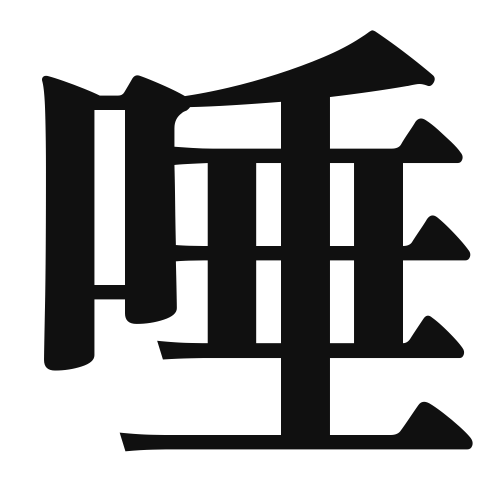1. Overview of Meaning
The kanji “唾” (pronounced “daba” in Japanese) means “saliva” or “spit.” It refers to the watery substance produced in the mouth, which plays a role in digestion and oral hygiene.
2. Formation and Radical
Formation of the Kanji: The kanji “唾” is a phono-semantic compound (形声文字), which means it combines a phonetic component and a semantic component. The left part “口” (meaning “mouth”) indicates the meaning related to the mouth, while the right part “タ” (pronounced “ta”) provides the phonetic sound.
Radical: The radical of “唾” is “口” (kuchi), which is commonly associated with words related to the mouth or speaking.
3. Examples of Usage
Common Words and Phrases:
- 唾液 (だえき, daeki) – saliva
- 唾を吐く (つばをはく, tsuba o haku) – to spit
Example Sentences in Daily Conversation:
- 「彼は唾を吐いてしまった。」(かれはつばをはいてしまった。) – “He accidentally spat.”
- 「唾液は消化に重要です。」(だえきはしょうかにじゅうようです。) – “Saliva is important for digestion.”
4. Synonyms and Antonyms
Similar Kanji:
- 涎 (よだれ, yodare) – drool; this refers to saliva that drips from the mouth, often used in a more informal context.
Antonyms:
- 乾燥 (かんそう, kansou) – dryness; this refers to the absence of moisture, which is the opposite of the wetness associated with saliva.
5. Cultural and Historical Background
Relation to Japanese Culture: In Japanese culture, saliva is often associated with health and vitality. It is considered important for oral health and is sometimes referenced in traditional medicine.
Proverbs and Idioms: One common expression is “唾をつける” (つばをつける, tsuba o tsukeru), which means “to mark one’s territory” or “to claim something,” often used in a competitive context.
